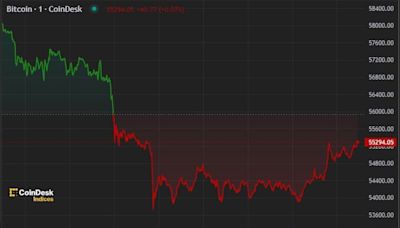Search results
Learn about the process, purposes, types and effects of liquidation or winding up of companies in Singapore. Find out the grounds, stages and rights of creditors and contributories in a liquidation.
- What Is Liquidation?
- How Liquidation Works
- Distribution of Assets During Liquidation
- Liquidation of Securities
- Example of Liquidation
- What Is the Liquidation of a Company?
- What Does It Mean to Liquidate Money?
- Is a Company Dissolved After Liquidation?
- The Bottom Line
Liquidation in finance and economics is the process of bringing a business to an end and distributing its assets to claimants. It is an event that usually occurs when a company is
, meaning it cannot pay its obligations when they are due. As company operations end, the remaining assets are used to pay creditors and shareholders, based on the priority of their claims.
The term liquidation may also be used to refer to the selling of poor-performing goods at a price lower than the cost to the business or at a price lower than the business desires.
The term liquidation in finance and economics is the process of bringing a business to an end and distributing its assets to claimants.
A bankrupt business is no longer in existence once the liquidation process is complete and it has been deregistered.
Liquidation usually occurs during the bankruptcy process under Chapter 7.
Chapter 7 of the U.S. Bankruptcy Code governs liquidation proceedings. Solvent companies may also file for
, but this is uncommon. Not all bankruptcies involve liquidation;
, for example, involves rehabilitating the bankrupt company and restructuring its debts. In Chapter 11 bankruptcy, the company will continue to exist after any obsolete inventory is liquidated, after underperforming branches close, and after relevant debts are restructured.
Unlike when individuals file for Chapter 7 bankruptcy, business debts still exist after Chapter 11 bankruptcy. The debt will remain until the statute of limitations has expired, and as there is no longer a debtor to pay what is owed, the debt must be written off by the creditor.
Assets are distributed based on the
claims, with a trustee appointed by the U.S. Department of Justice overseeing the process. The most senior claims belong to
who have collateral on loans to the business. These lenders will seize the collateral and sell it—often at a significant discount, due to the short time frames involved. If that does not cover the debt, they will recoup the balance from the company’s remaining liquid assets, if any.
Next in line are unsecured creditors. These include bondholders, the government (if it is owed taxes), and employees (if they are owed unpaid wages or other obligations).
Liquidation can also refer to the act of exiting a securities position. In the simplest terms, this means selling the position for cash; another approach is to take an equal but opposite position in the same security—for example, by
the same number of shares that make up a long position in a stock.
A broker may forcibly liquidate a trader’s positions if the trader’s portfolio has fallen below the
, or they have demonstrated a reckless approach to risk-taking.
Company ABC has been in business for 10 years and has been generating profits throughout its run. In the last year, however, the business has struggled financially due to a downturn in the economy. It has reached a point where ABC can no longer pay any of its debts or cover any of its expenses, such as payments to its suppliers.
ABC has decided that it will close up shop and liquidate its business. It enters into Chapter 7 bankruptcy and its assets are sold off. These include a warehouse, trucks, and machinery with a total value of $5 million. Currently, ABC owes $3.5 million to its
The liquidation of a company happens when company assets are sold when it can no longer meet its financial obligations. Sometimes, the company ceases operations entirely and is deregistered. The assets are sold to pay back various claimants, such as creditors and shareholders. Not all assets will sell at 100% of their value, so the business and bankruptcy courts will determine an
of the property to distribute to creditors.
To liquidate means to convert assets into cash. For example, a person may sell their home, car, or other asset and receive cash for doing so. This is known as liquidation. Many assets are assessed based on how liquid they are. For example, a home is not very liquid because it takes time to sell a house, which involves getting it ready for sale, ass...
No, a company is not dissolved after liquidation. Dissolving a company and liquidating it are two separate procedures. Liquidating a company means selling off its assets to claimants whereas dissolving a company is deregistering it.
When a company becomes insolvent, meaning that it can no longer meet its financial obligations, it undergoes liquidation. Liquidation is the process of closing a business and distributing its assets to claimants.
The sale of assets is used to pay creditors and shareholders in the order of priority. Liquidation is also used to refer to the act of exiting a securities position, usually by selling the position for cash.
- Will Kenton
- 2 min
Liquidation.com is a trusted source of wholesale lots and surplus auctions online. Find major brands, bid on fixed price or sealed bid items, and register today for free.
A company under liquidation with receipts has to file its Declaration of Receipts and Payments ('Declaration') with IRAS on a yearly basis, while a company under liquidation without receipts has to file its Declaration once every 4 years.
Winding up (or liquidation) is the process by which a company’s assets are collected and sold to pay off its debts. Any monies remaining after all debts, expenses and costs have been paid off are distributed amongst the company's shareholders.
Learn the difference between liquidation and winding up, and the reasons and steps for closing a company in Singapore. Find out how to apply for a strike off or hire a professional service like 3E Accounting to help you with the process.
Learn what liquidation is and how it affects your company. Find out the differences between voluntary and compulsory liquidation, and the steps involved in each type.





